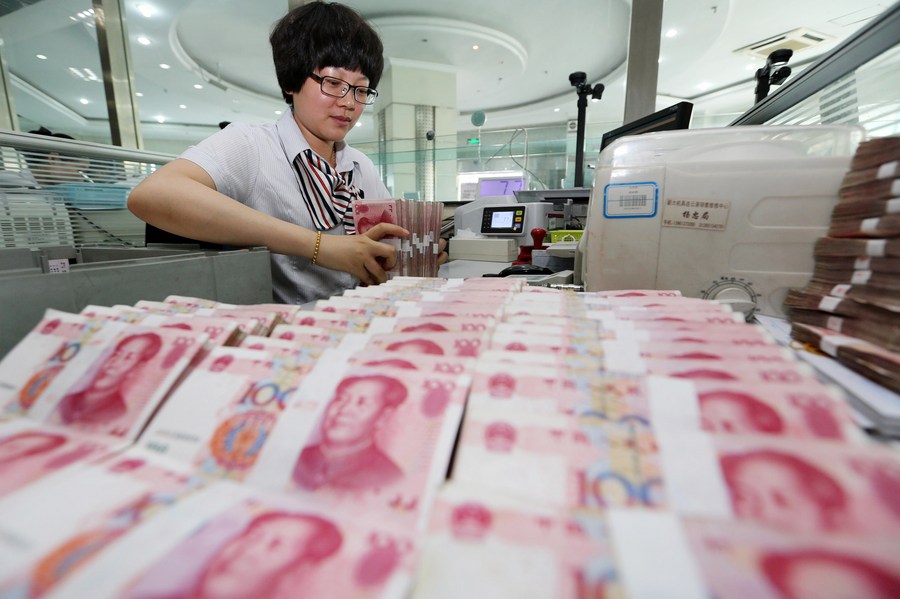Reform set to help nation guard against financial risks


China's plan to reorganize its top financial regulatory bodies underscores policymakers' emphasis on strengthening financial risk prevention by removing a regulatory vacuum and bolstering supervision coordination, experts said on Wednesday.
The plan, if approved, would give a significant boost to the ability of China's financial system to serve the real economy and protect investors' rights as the country seeks to deepen financial reform and opening-up to empower a steady economic rebound and bolster market confidence.
The State Council, China's Cabinet, submitted the reform plan to the National People's Congress, the top legislature, on Tuesday. It proposed setting up a new national financial regulatory administration, which would replace the China Banking and Insurance Regulatory Commission.
Apart from taking over the commission's responsibility of supervising banking and insurance institutions, the new administration would also supervise financial holding companies and other financial conglomerates, which is now a duty of the People's Bank of China, the country's central bank, the plan said.
The proposed administration — functioning directly under the State Council — would ultimately oversee all financial sectors except the securities industry, which will continue to be regulated by the China Securities Regulatory Commission.
The reform, if approved, would end the framework — consisting of the central bank as well as the CBIRC and the CSRC — that has overseen the country's financial regulation since 2018.
Instead, a streamlined regime would be established, whereby the PBOC would be responsible for monetary policy and macro-prudential regulation. The new administration and the CSRC would be in charge of financial institution supervision and financial activity oversight, experts said.
Tian Xuan, a deputy to the 14th National People's Congress and associate dean of Tsinghua University's PBC School of Finance, said the new system will help promote integrated financial regulation. This will help avoid a regulatory vacuum and arbitrage that arise from a segmented regulatory system.
"It will also be of great help to promote supply-side structural reform in the financial sector and boost the capability of the financial sector to serve the real economy," Tian said.
The proposed institutional changes reflect the key focus areas of Chinese policymakers in the next few years, which include improving financial regulation coordination to enhance financial stability, analysts at Goldman Sachs said in a research note.
The Government Work Report, delivered at the opening meeting of the first session of the 14th NPC on Sunday, underlined the need to see that all parties involved assume their full responsibilities to guard against regional and systemic financial risks.
Experts said the status of the CSRC would be further lifted thanks to the reform, reflecting the country's growing focus on developing the capital market to boost self-reliant technology advances.
According to the reform plan, the CSRC will be changed from a public institution to an agency, still directly under the State Council. The National Development and Reform Commission's function related to corporate bond issuance would be transferred to the CSRC.
The decision to retain the CSRC and make it administratively more important demonstrates policymakers' increased focus on developing the equity market and pushing forward more direct financing to better allocate capital and help slow the buildup in debt, Goldman Sachs analysts said.
Under the plan, the PBOC's duty of protecting consumers of financial products and the CSRC's responsibilities to protect investors would both be transferred to the new administration.
The changes will help ensure seamless protection of financial product consumers and also facilitate healthy development of the capital market, experts said.
Experts said the reform would also help the PBOC better perform its core functions.
Spinning off such noncore responsibilities as financial holding company supervision, the PBOC can focus more on monetary policy and macro-prudential regulation, conducive to establishing a modern central banking system, said Dong Ximiao, chief researcher at Merchants Union Consumer Finance Co.
Meng Lei, China equities strategist at UBS Securities, said the midterm outlook of A shares remains upbeat despite recent corrections, as earnings growth rebounds while valuation levels recover amid brightening investor confidence.
China's A-share market slipped on Wednesday with the benchmark Shanghai Composite Index down by 0.06 percent to close at 3283.25 points.
- Measures help Tibetan antelope migrate in Xizang
- Xizang Airport sees surge in pet shipments
- Premier stresses high-quality implementation of major national projects
- Mainland tourism dazzles at Taipei travel expo with cultural relic souvenirs
- Global campers promote cultural exchange at mini world expo
- National health body expands pediatric services to nearly all hospitals





































